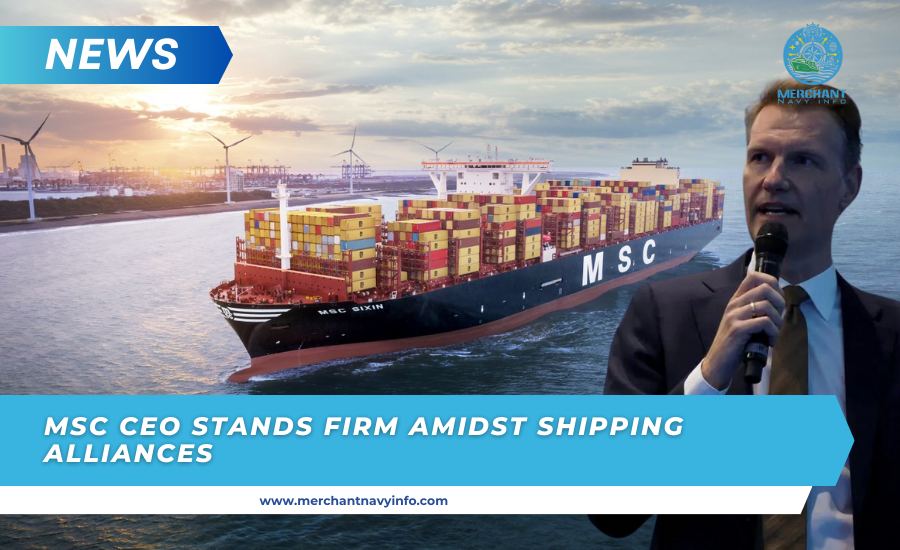
MSC CEO Vows to Stand Alone as Global Shipping Rivals Team Up
MSC Mediterranean Shipping Co. plans to navigate volatile shipping markets independently and ruled out a new alliance months before its partnership with AP Moller-Maersk A/S ends.
“We want to be independent,” Chief Executive Officer Soren Tufte said in a phone interview. “We will control our own destiny so that we can give our customers the speed, agility and decision-making that we want.”
Tufte’s strategy for Geneva-based MSC, the world’s largest container shipping line, relies heavily on intercontinental shipping. Maersk, by contrast, is seeking to become a broader logistics company with integrated land and sea operations and unveiled plans in January to integrate part of its fleet in partnership with Hapag-Lloyd AG.
MSC and Maersk formed the so-called 2M Alliance in 2015 to assemble cargo on their respective ships. Due to divergent strategies, they announced in early 2023 that they would end their partnership early next year.
The vessel-sharing agreement aims to maximize capacity and keep costs low amid growing volatility in global trade. Rising protectionism and geopolitical conflict contrast with continued growth in transfer volumes.
MSC’s go-it-alone strategy reflects its drive to gain greater dominance in the container trade after surpassing Maersk as the global leader in 2022. Founded in 1970 by Italian Gianluigi Aponte, the company has grown to operate 853 ships with a capacity of more than 6 million TEUs, according to data provider Alphaliner.
Its fleet accounts for about 20% of global capacity, and that share is likely to increase in the coming years as the privately held company has signed nearly a third of the world’s ship orders, more than four times that of Maersk.
Tufte dismissed concerns about overcapacity and falling freight rates as likely overblown, pointing to bottlenecks as demand rebounds following the end of the coronavirus lockdown and disruptions caused by the closure of the Suez Canal.
Freight rates rose during the post-pandemic consumption boom before falling in 2023 when supply lines and consumption return to normal. When conflict in the Red Sea disrupted supply lines late last year, rates rose again, almost quadrupling in six months.
“If you look at our order book, it’s also a signal to our customers that we believe in shipping,” said the 50-year-old executive, who has led MSC since 2020. “We are a shipping company and the assets we are ordering will be in our fleet for the next 25 to 30 years.”
MSC announced a new network plan on Monday to give customers greater flexibility in adapting to global events. The system will have five routes: Asia-Mediterranean, North America West Asia Coast, North America East Asia Coast, Asia-North Europe, and a transatlantic network. For more flexibility, there will be loops within these trade routes (34 in total).
The new network “will offer customers more direct port pairs” and “more options,” Toft said. “We believe this will provide the greatest possible flexibility for us and our customers.” ”
MSC’s route, for example, will allow companies to ship through the Suez Canal or, if security doesn’t improve, around the Cape of Good Hope. Maersk and Hapag-Lloyd announced similar options on Tuesday.
For months, Yemen’s Houthi militants have attacked ships in the Red Sea in protest of Israel’s war with Hamas. That has forced ships to sail around South Africa instead of through the main passage between Europe and Asia, the Suez Canal, adding thousands of miles to the journey.
“I don’t think there will be any short-term solution” to ensure safe passage through the canal, Toft said.
Despite global turmoil and ongoing threats to the shipping industry, MSC’s president remains cautiously optimistic. “We don’t see any recession,” he added. “We see a pretty positive outlook for demand.”









